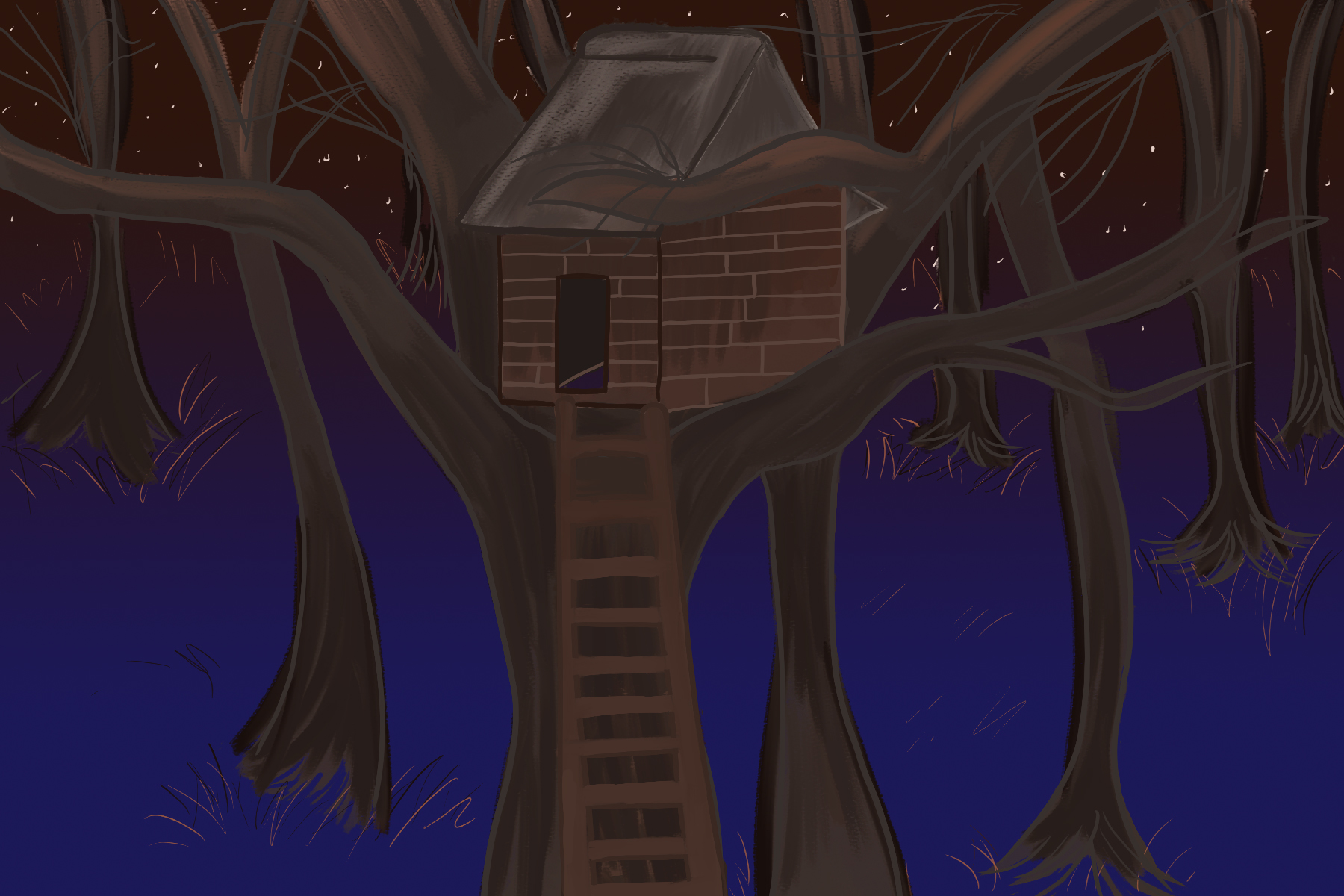Within the horror genre, it seems children are constantly convening with the supernatural realm. In “The Shining,” Danny Torrance holds eerie conversations with his finger demon, Tony. The Loser’s Club in “IT” battles a bloodthirsty clown for control of their tiny town. Cole Sear famously uses his sixth sense to befriend the ghosts of Philadelphia.
Although this trope is well-worn, interactions between kids and mystic forces never fail to grab an audience’s attention. When children perceive evil forces at work, viewers hold their breath and pray for deliverance. Recently, Stephen Chbosky released “Imaginary Friend,” a novel that hinges on a child’s relationship with the inexplicable.
Nice neighborhood! pic.twitter.com/RyzQYrU3jy
— Stephen Chbosky (@StephenChbosky) October 4, 2019
“Imaginary Friend” follows Christopher Reese, a sweet natured 7-year-old starting life in a new town. In the beginning, his concerns are pretty basic. Christopher loves Froot Loops, cartoons and movie nights with his mom. At school, he struggles to keep up with the other kids, leading him to worry that he’ll never master the material at hand.
Of course, Christopher rarely vocalizes these concerns. Intuitive and caring, he knows his mother already has her hands full. As a young single mother, Kate Reese must fight for basic necessities day after day. She’s spent years reeling from her husband’s suicide but is now determined to finally give Christopher a peaceful life.
After fleeing an abusive boyfriend, she forsakes her grief-driven, self-destructive behavior. More than anything, she wants, “No more debt. No more bad men. Just the peace of a life well-fought and won.”
Almost immediately, “Imaginary Friend” reveals the unmistakable stylistic touch of its creator. Chbosky crafts a rich internal life for his protagonist and fills the text with relatable reminders of adolescence. Fans of his bestselling novel, “The Perks of Being a Wallflower,” will recognize Chbosky’s affectionate affinity for introspective detail.
https://www.instagram.com/p/B3mvFhSgVoO/?utm_source=ig_web_copy_link
As Christopher braves the perils of elementary school, he longs for McDonald’s, indoor basketball courts and personal petting zoos. When alone, the child recalls the smell of tobacco on his father’s shirt and dreams of the day when he will buy his mother a gigantic house. If nothing else, “Imaginary Friend” is a novel unashamed of intense detail.
As these details unfold, Christopher begins to notice inklings of the supernatural. Upon entering his new town, a fluffy white cloud starts following the lonely boy. This cloud resembles a human face and trails him from the sky with an unflinching smile. Although strange, the face comforts Christopher, who is otherwise alone in a dead end town.
One day, after enduring the taunts of his classmates, Christopher strikes up a conversation with the otherworldly cloud. Soon, however, his odd friend begins to drift away. Dismayed, Christopher chases the face down the street and into a dark forest. After this, the little boy is not seen or heard from for six days.
The horror within “Imaginary Friend” unfolds slowly, and the book’s massive length perfectly accommodates this pace. Steadily, Chbosky guides readers up a winding path of suspense, scattering clues on the wayside for observant fans. This initially slow pace comes to a conclusion with Christopher’s journey into the woods. The instance ignites the first truly chilling moments within the story. Despite their impressive fear factor, these sights only foreshadow the novel’s sinister surprises.
When he resurfaces, Christopher is profoundly different. A panic-stricken Catholic teenager, frantically trying not to break curfew, discovers him on the roadside one quiet night. He can’t remember what happened in the woods but recalls a shadowy “nice man” leading him toward the glow of headlights.
After a few days in the hospital, Christopher returns to his normal life seemingly unscathed. In fact, his circumstances begin to improve. Math quizzes miraculously become less difficult and formerly impossible books are now easy to decipher. Eventually, Christopher and Kate even win the lottery and move into a perfect suburban home. There’s only one problem: The house sits directly in front of the ominous forest.
Christopher, despite his terrifying experience in the woods, feels increasingly drawn to the strange landmark. One night, he ventures back to the infamous spot. Immediately, the “nice man” reappears in the young boy’s life. Now, this eerie figure has a task for his protege to fulfill: Christopher must construct a treehouse in the forest before Christmas. Without any further explanation, the child faithfully begins to execute his new friend’s instructions.
At this point, one of the novel’s more ambiguous traits begins to surface within the story. “Imaginary Friend” often mimics the characteristics of a classic 1980s Stephen King horror novel. Upon closer examination, the correlation becomes difficult to ignore.
The story follows an odd young outcast, surrounded by people blind to various supernatural realities. Eventually, keeping in step with tradition, this individual finds himself alone in an isolated, eerie ghost town. At school, the protagonist later befriends a group of quirky outsiders and uses his intuitive gaze to pick up on each member’s intricacies.
Unsurprisingly, the similarities don’t end with simple plot points. Throughout the story, language loaded with religious significance repeatedly surfaces. Like many of its peers, “Imaginary Friend” dares to reimagine biblical tradition, mostly for the sake of scare appeal.
After all, adding a new spin on familiar subject matter consistently produces panic. As the novel continues, Chbosky unveils various reflections on good, evil and human nature. Such musings are staples of the horror genre and will come as no surprise to long-time fans.
Depending on your personal taste, these similarities could either seem endearing or irksome. Some readers might dub the novel charmingly traditional, while others could label it banal or archetypal. If you’re in the mood for a classic horror story full of plucky outcasts and supernatural savvy children, “Imaginary Friend” will not disappoint.
https://www.instagram.com/p/B2o_99fFJlE/?utm_source=ig_web_copy_link
Familiar, but nonetheless frightening details course through the gargantuan novel. In all, Chbosky’s newest work certainly invokes comparison to giants like “The Shining,” “It” or “The Sixth Sense,” but that’s not necessarily a bad thing.
















